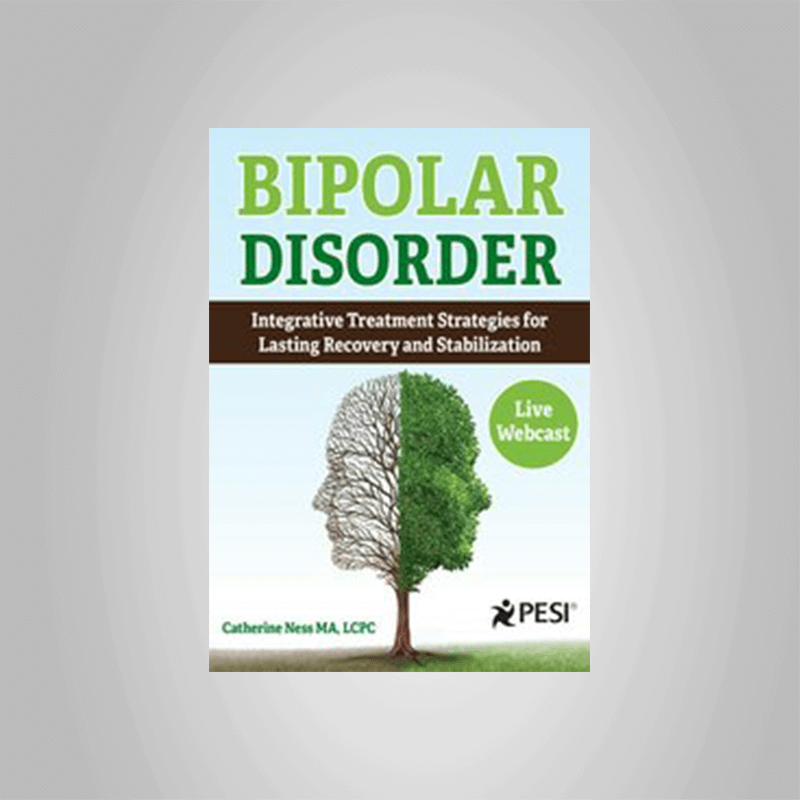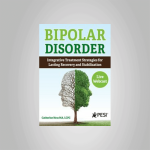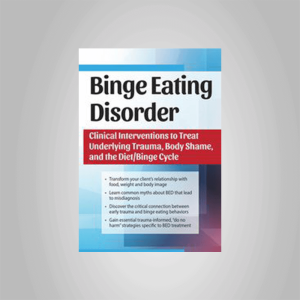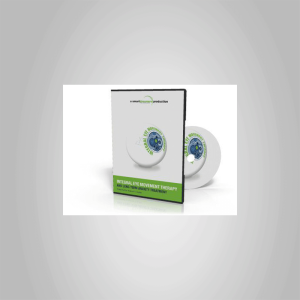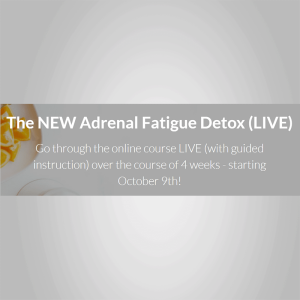Catherine Ness – Bipolar Disorder: Integrative Treatment Strategies for Lasting Recovery and StabilizationDescriptionDo you suspect a client may have Bipolar Disorder but feel overwhelmed by the complexity of their clinical presentation?Are you exhausted from chasing your client’s mood and trying to get out in front of the next crisis?Does your client display recurrent mood swings, poor treatment compliance and unpredictable, dangerous impulsivity?If you’re looking for a clear, comprehensive approach to treating this vulnerable and high risk population, this training is for you!Watch this recording to discover an integrative approach that goes beyond treating a single mood state and crisis intervention. You’ll learn innovative, non-medication approaches that combine the most promising researched-based theories into a cohesive treatment guideline to help your clients achieve long-term stabilization.Packed with tools, tips and handouts, this evidence based, integrative approach will leave your clinical toolbox overflowing with practical interventions, including how to:Confidently diagnose Bipolar Disorder and differentiate it from similar disordersIdentify prodromal symptoms and patterns that precede mood labilityMotivate your clients to make necessary lifestyle changes for stabilizationSignificantly decrease destructive behavior, including self-harm and suicideCreate custom, realistic treatment plans that cater to your client’s strengthsGo beyond “supportive therapy†to help your clients regain control of their mood and, ultimately, their lives.HandoutsManual – Bipolar Disorder (3.6 MB) 67 Pages Available after PurchaseOutlineMood on a Continuum: Conceptualizing the Bipolar SpectrumNeurobiological underpinnings of Bipolar DisorderAn acute condition or a chronic, progressive disease?Prognosis: Age of onset, importance of early interventionLimitations of the research and potential risksUnderstanding the bipolar patientClinical Assessment: How to Accurately Diagnose a Frequently Misdiagnosed Disorder DSM-5®: Bipolar I, Bipolar II and Cyclothymic Disorders; specifiersManic, mixed and depressive episodesCurrent evidence based assessment tools: SCID, MDQ, GBI, CICI3Do most clients present with depression or mania?5 key questions to ask at intakeHow to effectively gather family mental health historyTools to detect underreporting of symptomsâ€Unofficial†signs of mood labilityHow to recognize psychosisDifferential diagnosis: ADHD, Schizoaffective Disorder, substance abuse and personality disordersIntegrative Treatment Model: Clinical Interventions to Increase Engagement, Stabilize Symptoms and Prevent Relapse PsychoeducationTools to promote acceptance of diagnosis; implications of getting betterDifferentiate between moodiness and Bipolar DisorderMedications and medication compliance issuesFamily TherapyCompliance and communicationIdentification of triggers and prodromal symptomsCreate an individualized action planCognitive-Behavioral Therapy (CBT)Teach clients how cognition changes with moodIdentification or triggers and prodromal symptomsCreate an individualized action planInterpersonal and Social Rhythm Theory (IPSRT)Sleep hygiene, routine and circadian rhythmsMood and cognition chartingGrief related to social role changesMania ManagementSafety assessmentCommunication with support networkFrequency of monitoringIdentify and Mange Personal DeficitsHow managing deficits decreases relapseStrategies to improve social connectednessCommon cognitive deficits; their impact on stabilizationSkills for managing cognitive deficitsClinical Considerations Suicide and self-harm: Assessing for riskCrisis Intervention: Which symptoms warrant hospitalization?Prodromal symptoms: Red flags to listen for in sessionChildren and adolescents: DMDD v. Bipolar DisorderComprehensive, Step-by-Step Case Conceptualization 40 y/o female – depressed presentation, vague history, excessive spending23 y/o male – hyperverbal, angry, depressed, chronic marijuana useFacultyCatherine Ness, MA, LCPCCatherine Ness MA, LCPC, is a psychotherapist and founder/owner of Affective Counseling, a mental health practice specializing in and committed to mood management. In her 14 years of clinical experience in a variety of settings, Catherine has developed a specialization in and a passion for the treatment of Bipolar Disorder.Frustrated by the lack of specific interventions available for treating this vulnerable population, she spent years researching and developing an integrative treatment approach with tangible techniques, outside of medication management, that improve the lives of those struggling with this disorder.Catherine is an experienced speaker who is passionate about educating mental health professionals about Bipolar Disorder; her most recent presentations were with the Veterans Administration in Chicago and the Illinois Mental Health Counselors Association conference in the spring of 2019.Speaker Disclosures: Financial: Catherine Ann Ness maintains a private practice. She receives a speaking honorarium from PESI, Inc.Non-financial: Catherine Ann Ness has no relevant non-financial relationship to disclose.
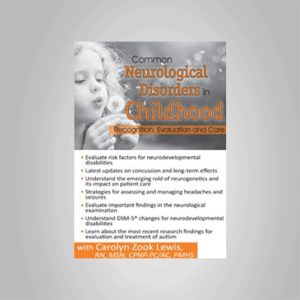 Carolyn Zook Lewis – Common Neurological Disorders in Childhood: Recognition, Evaluation and Care
₹5,810.00
Carolyn Zook Lewis – Common Neurological Disorders in Childhood: Recognition, Evaluation and Care
₹5,810.00
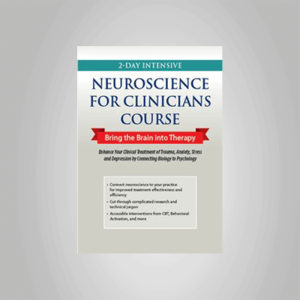 Carol Kershaw, Bill Wade – 2-Day Intensive Neuroscience for Clinicians Course: Bring the Brain into Therapy
₹10,790.00
Carol Kershaw, Bill Wade – 2-Day Intensive Neuroscience for Clinicians Course: Bring the Brain into Therapy
₹10,790.00
Catherine Ness – Bipolar Disorder: Integrative Treatment Strategies for Lasting Recovery and Stabilization
₹5,810.00

